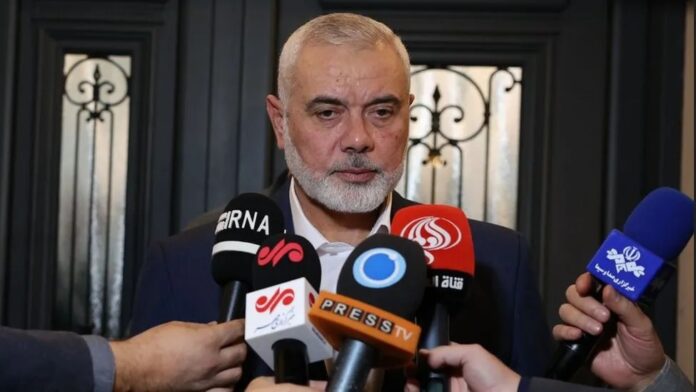On Tuesday, Hamas’s political leader confirmed that the group is considering a new proposal to pause the fighting in the Gaza Strip.
Ismail Haniyeh stated that they had received an invitation to discuss a framework set out by Israel, the US, Qatar, and Egypt. The proposal reportedly suggests a six-week truce, during which more Israeli hostages would be exchanged for Palestinian prisoners.
Haniyeh emphasized that Hamas’s main objectives were a permanent ceasefire and full Israeli withdrawal. However, Israel’s Prime Minister, Benjamin Netanyahu, rejected these goals, insisting that the war would not end until “total victory” had been achieved. This would include the elimination of Hamas and the release of all hostages.
The ongoing conflict was sparked by a cross-border attack by Hamas gunmen on southern Israel on October 7, resulting in the deaths of about 1,300 people and the capture of approximately 250 others. Since then, more than 26,700 people have been killed in Gaza, as reported by the territory’s Hamas-run health ministry.
Despite previous ceasefires, the situation remains volatile, with ongoing battles between Israeli forces and Hamas fighters. Qatar’s prime minister, the director of the US Central Intelligence Agency, and Egypt’s intelligence chief recently held talks in Paris with Israel’s intelligence agencies. They agreed on the terms of a framework for a second pause in the fighting, focusing on the release of prisoners and hostages.
US Secretary of State Antony Blinken described the proposal as “a strong one and a compelling one,” while Hamas expressed openness to discussing new practical initiatives, provided that they lead to a comprehensive halt to the aggression, shelter for displaced people, and lifting of the blockade.
As the situation intensifies, there is no clear path to a peaceful resolution, and the impact on civilians has been devastating. Concerns continue to mount for the safety of displaced individuals and medical staff amid the ongoing turmoil in Gaza. The international community is closely monitoring the developments and urging both parties to seek a peaceful, diplomatic solution.

